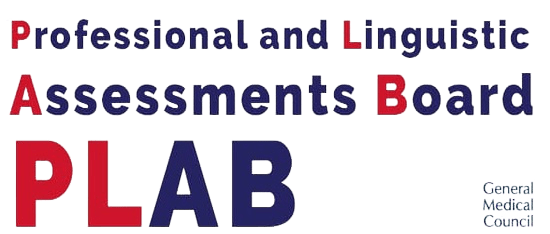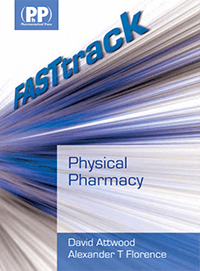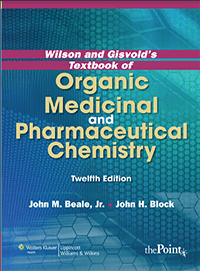Pharm D







Education related to the pharmacy is quite famous among medical students. Some choose it as their professional goal and take admission in the whole degree program. While others go for a professional diploma and get the certificate of professional two years training.
D Pharmacy scope in Pakistan:
In Pakistan, the Pharm.D. (Doctor of Pharmacy) is a professional diploma. Pharmacy study is provided at the graduate as well as master’s level. Twenty-one universities are registered with the Pakistan Pharmacy Council to teach Pharmacy courses.
In 2004 the Pakistan Higher Education Commission and the Pakistan Pharmacy Council revised the curriculum and changed the 4-year Bachelor of Pharmacy (Bachelor of Pharmacy) Program to a 5-year Bachelor of Pharmacy Program. Program (Doctor of Pharmacy). Almost all universities have started to offer 5-year Pharm.D Program.
In 2011, the Pakistan Council of Pharmacy approved the award of a Doctor of Pharmacy degree, a five-year program at the Department of Pharmacy, University of Peshawar.
D Pharmacy admission requirements:
In general, for access to an official doctorate program, it will be necessary to have official Bachelor’s degrees, or equivalent, and University Master’s degrees.
- Have an official degree of Graduate or graduate, whose duration, according to community law regulations, is at least 300 ECTS credits. Such graduates must take the compulsory training complements of this standard. Unless the study plan for the corresponding undergraduate degree includes research training credits, equivalent in educational value to research credits from Master’s studies.
This admission will not imply, in any case, the homologation of the previous title that the interested party has or its recognition for other purposes than that of access to doctoral studies.
- Have another Ph.D. degree obtained by previous university regulations.
Eligibility criteria:
In Pakistan, a person with the following qualification will be considered as an eligible candidate for the pharmacy technician course.
Tuition with science from a recognized institute in Pakistan Foreign education is equivalent to a Bachelor of Science.
Exam and course description:
Students who pass the pharmacy technician course are usually registered in category B in Pakistan. The total duration of this course is 2 years. There are mainly two parts that are made up of various theoretical and practical topics.
The Pakistan Council of Pharmacy (PCP) is the main body that conducts the exams and will examine all enrolled students no more than 2 times a year. Each student will have three chances to pass each exam.
If a student fails in some work such as theory or practice, then that student will only appear in that respective practical and theoretical exam.
Pharmacist Job/ Responsibility:
- Pharmacist put in order, mix, compound or dispense drugs and medicines, ointments, powder, pills, tablets and injections
- Plan, monitor & evaluate drug programs or routines
- Review prescriptions to assure accuracy, to determine the required ingredients & to evaluate their precision
- Aid physicians by explaining and informing about the drug interactions, reactions, side effects & precautions regarding the use of medicines
- Prepare special formulations for medications of exceptional cases (For some cases medications are not available already)
- Monitor the health and progress of patients to ensure the safe and effective use of medication
- Those in research concern themselves with fusion of new drugs, new processes, clinical testing of the effects of such drugs on animals & humans and obtaining the required License from the drug control authorities
- They produce of medicines, develop the methods or processes of production & quality control
- They are responsible for exact mixing of substances and supervising the whole production procedure in pharmaceutical industries. One mistake can alter the whole procedure and all efforts become waste.
Future of Pharmacy in Pakistan:
The scope of pharmacy in Pakistan is very wide. There are a wealth of career opportunities available to pharmacy students in both the government and private sectors.
This editorial is an excellent opportunity to publicize the development of the Hospital Pharmacy in one of the largest regions of the world, twinned by language, a common history, and destiny that several leaders prophesy of great joint growth, it is Latin America.
Hospital Pharmacy in this huge region, Latin America, has experienced significant growth in recent years, along with the consolidation of Hospital Pharmacist Societies in almost all countries.
Initially, developments have been achieved in isolation without much interaction with countries in the region. In most of them, the line of advance guided by the Hospital Pharmacy has been followed, undoubtedly motivated by the similarity of culture and health systems.
In foreign countries, there is a legal framework that favors the activities of the Hospital Pharmacy, or the practice of the hospital pharmacist. However, in many countries enforcement is not very effective and the existence of legislation does not guarantee the development of the Hospital Pharmacy.
In general, Pakistani and other hospitals have developed pharmaceutical services according to their specific needs and responding to their problems. Most of them have focused their development on the perspective of generating savings and optimizing the acquisition and distribution systems.
The degree of progress is different between countries and between hospitals in the same country, so much so that there is uneven development of pharmaceutical services in hospitals, with the greatest development being concentrated in those of greater complexity.
In all countries there are great difficulties with the supply of pharmacists, not being able to respond to the needs of the labor market. This situation is deepened in the field of Hospital Pharmacy, in general, recently graduated pharmacists choose other branches of the profession such as Community Pharmacy, which in general is more profitable and in fewer numbers in Industrial Pharmacy or Research.
In some countries there is no uniformity in the university programs of the pharmacy career, postgraduate training is scarce, and continuous training is not formally required for professional practice. There is a scarce and heterogeneous postgraduate training residencies and Specialty in Hospital Pharmacy. That also includes the training of technicians at a tertiary level.
The training framework is still very different between the different countries. In general, clinical and research activities are still incipient in the region and most of the tasks are related to supply and distribution management. However, there are successful experiences of Hospital Pharmacy in American countries that are important points of exchange between professionals and hospitals.
1st Year:
- Physical Pharmacy
- Biochemistry
- Organic Chemistry
- Anatomy
- Physiology
2nd Year:
- Pharmacology
- Pharmacognosy
- Microbiology
- Dosage Form Design
3rd Year:
- Pharmaceutical Analysis
- Pathology
- Community & Dispensing
- Pharmaceutical
- Quality Management
4th Year:
- Biopharmaceutics
- Clinical Pharmacy
- Hospital Pharmacy
- Industrial Pharmacy
5th Year:
- Forensic Pharmacy
- Pharmaceutical Technology
- Medicinal Chemistry
- Pharmaceutical Management & Marketing


